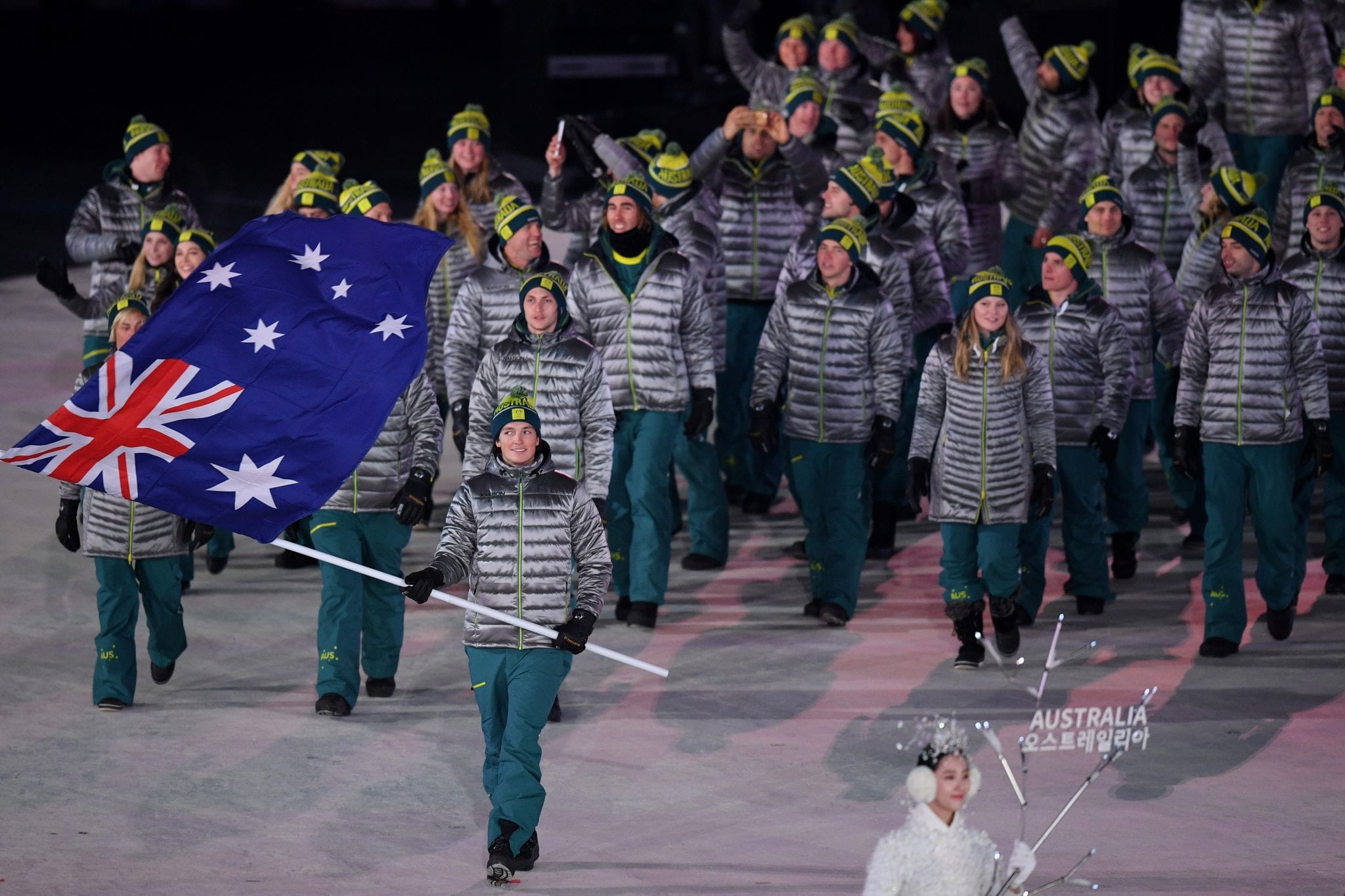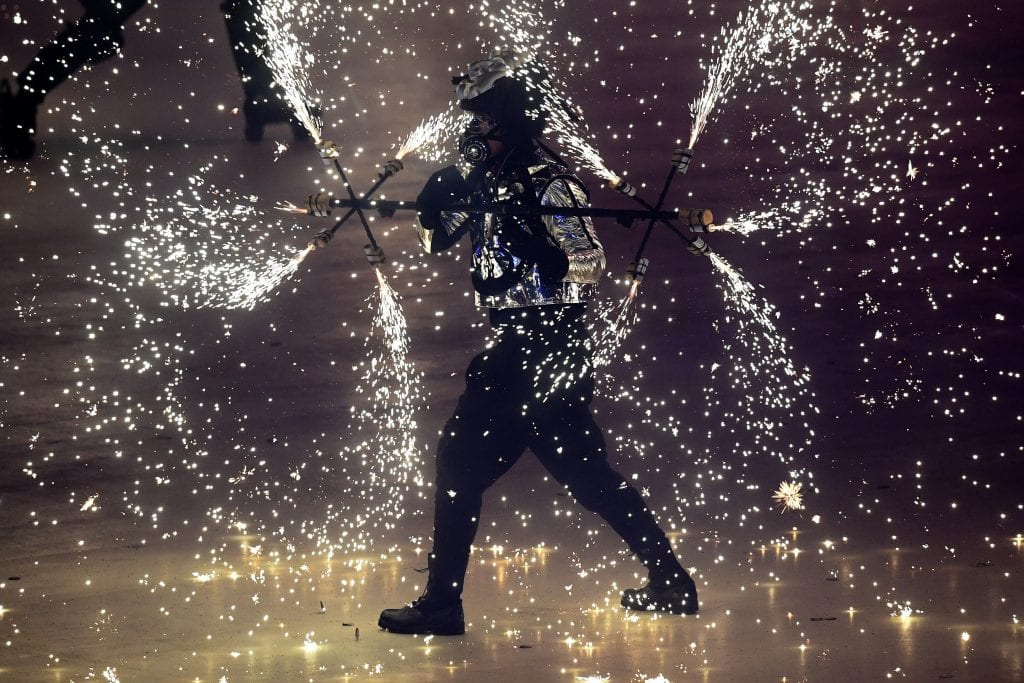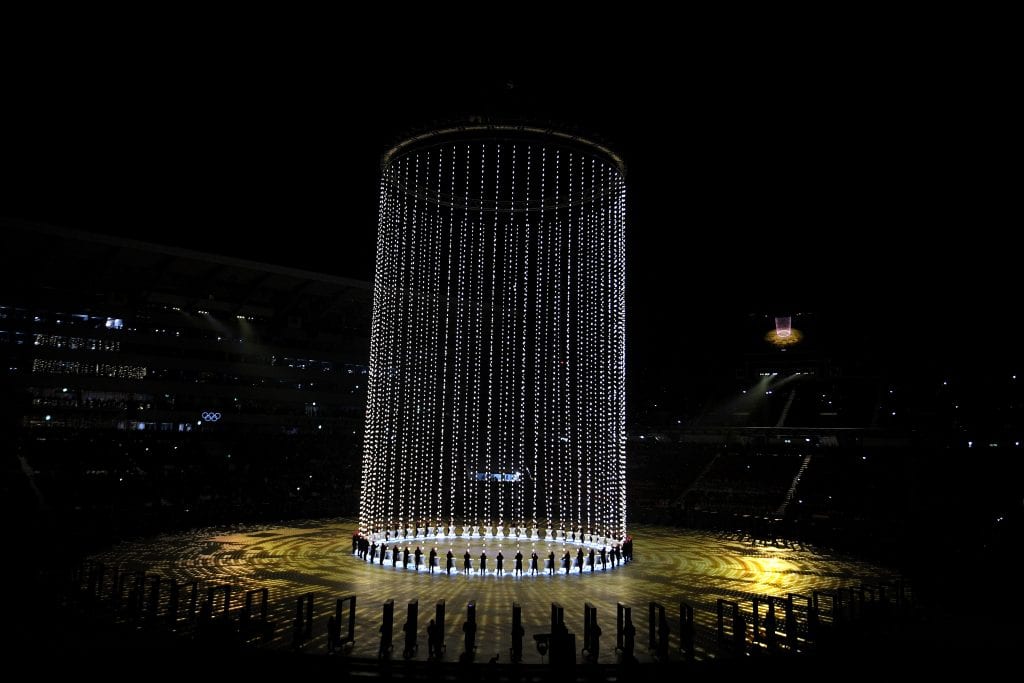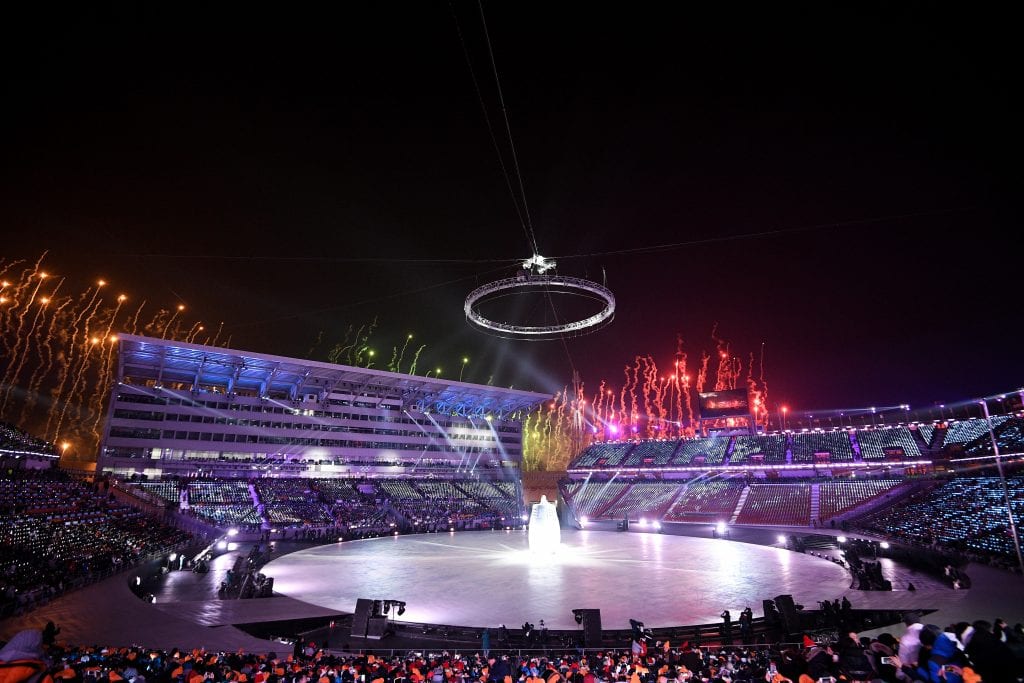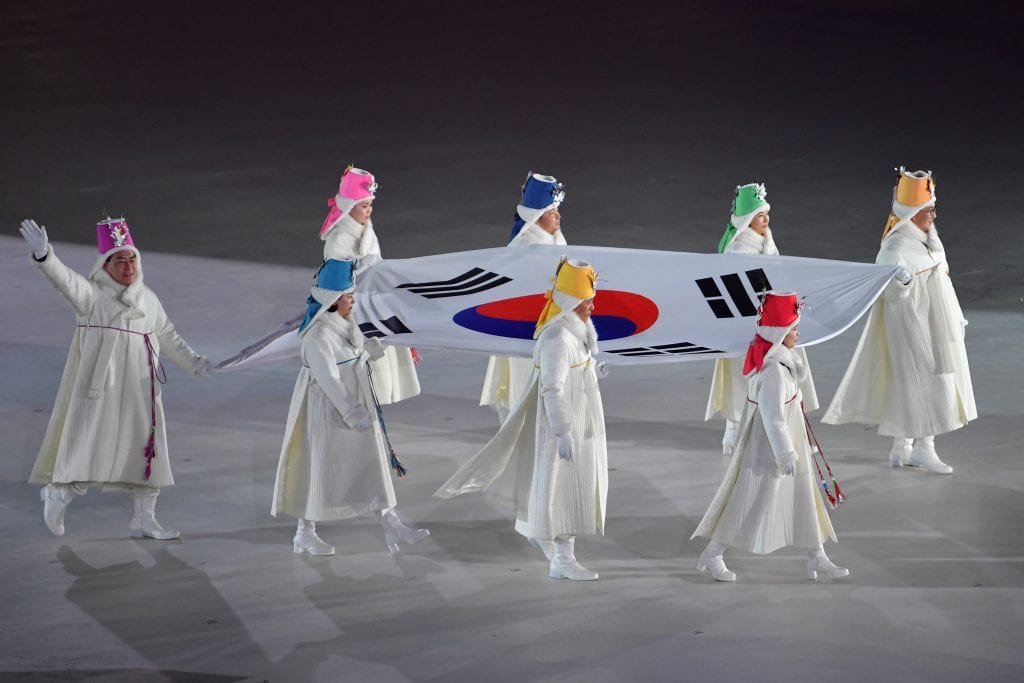In an extraordinary show of unity, North and South Korea sat side by side under exploding fireworks that represented peace, not destruction, as the 2018 Winter Olympics opened on a Korean Peninsula driven by generations of anger and suspicion.
The sister of North Korea’s leader, Kim Jong-Un, shook hands with South Korean President Moon Jae-in while they watched an elaborate show which aimed to tell the epic story of Korea – not North, not South, but the entire land.
After years of frustration, billions of dollars and a nagging national debate about their worth, the opening ceremony took place before a world watching the moment not only for its spectacle but for clues about what the political future could hold. A delegation from North Korea, dressed in identical garb, watched from an upper deck of the stadium.
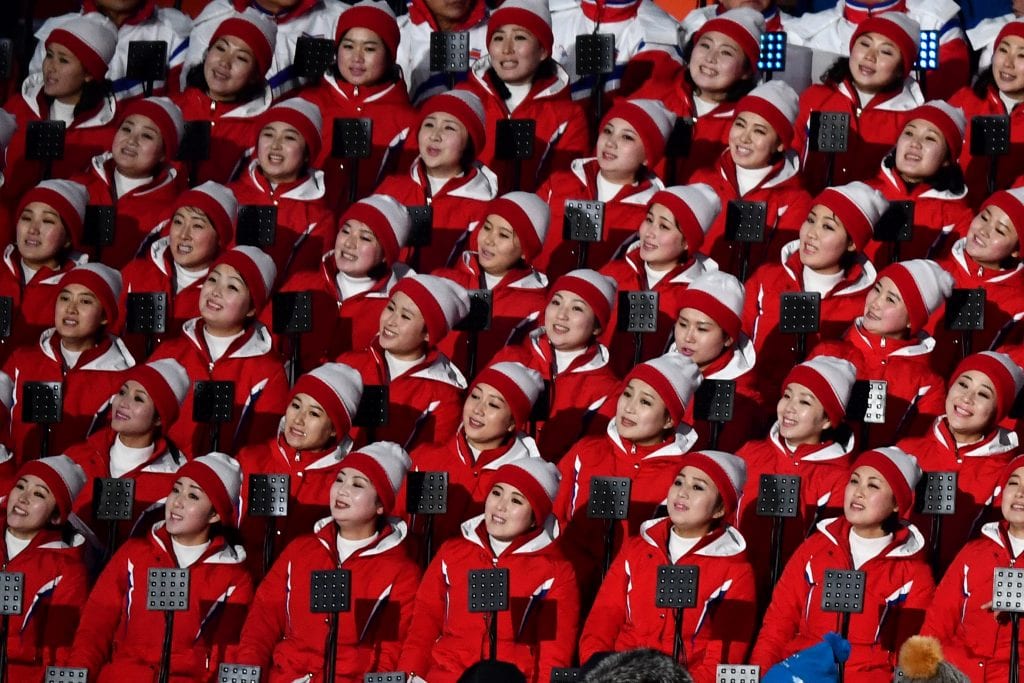
For Australia it was a late entry to the arena.
Marching in order of the Korean alphabet, the Australians were forced to wait in the wings before snowboarding gold medal hope Scotty James led the team out.
There was no dancing – as has been his want in recent social media posts – but he waved the flag with vigour in front of another 26 Australian athletes.
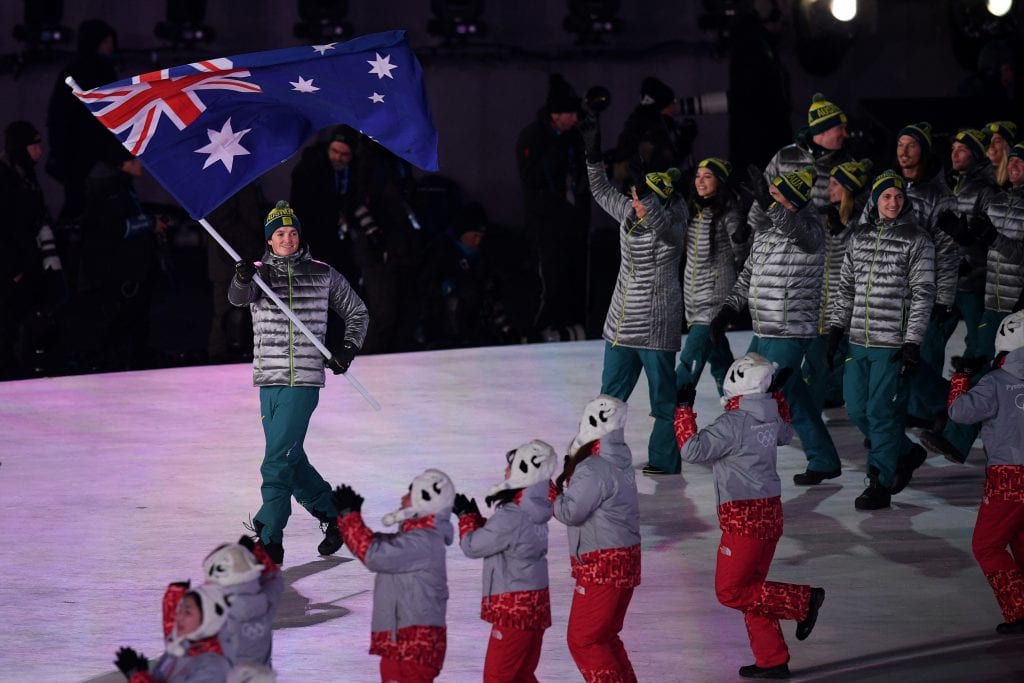
“It was absolutely amazing,” James told Channel Seven.
“It was everything I thought it would be. I will remember it forever.”
Told he looked sharper than American rival Shaun White he quipped: “hopefully that transitions into the halfpipe as well.”
The parade continued as winter giants Austria and China came out and girded themselves in the frigid Korean night.
A huge crowd gathered in the freezing Olympics Stadium in an isolated, mountainous corner of South Korea, as performances displayed the sweep of Korean history and culture. After a chaotic year of nuclear war threats and missile tests from the North, it was a striking visual moment.
There was a palpable excitement in this isolated, rugged mountain town, as one of the poorest, coldest and most disgruntled parts of an otherwise prosperous South Korea kicked off two weeks of winter sports, Olympic spectacle and, just maybe, a bit of inter-Korean reconciliation.
The North has sent nearly 500 people to PyeongChang after the Koreas agreed to a series of conciliatory gestures to mark the Games. More than 2900 athletes from 92 countries will compete, making it the biggest Winter Olympics to date.
And so, with a little help from a liberal South Korean president eager to engage the North Korean capital Pyongyang – and their star figure skater Kim Yuna who lit the Olympic Cauldron – the 2018 PyeongChang Games were opened.
Could PyeongChang’s initial pitch – that it could contribute to peace – actually become reality? The opening ceremony offered at least some hints about that, and maybe more. What’s certain is that these Games, more so than any in recent memory, are about far more than sport.
Turns out they’re are also about shirtless Tongans.
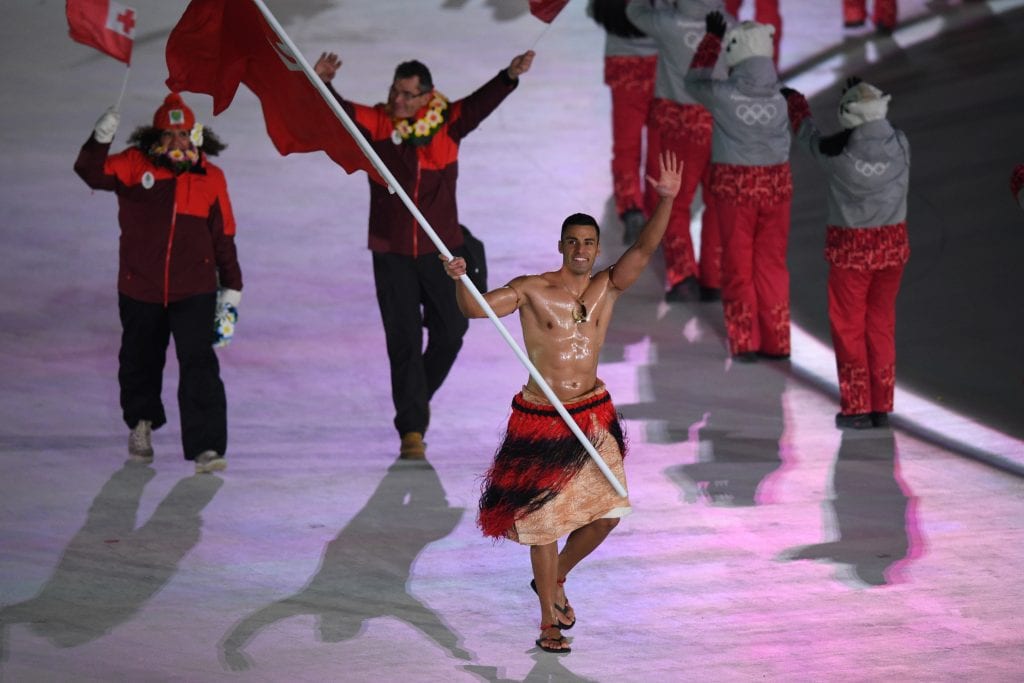
Cross-country skier Pita Taufatofua, whose flag-carrying, oiled torso appearance at the Rio 2016 opening ceremony made worldwide headlines, again shocked and delighted by bearing his chest in freezing temperatures.
He wore a manafau, a traditional dancer’s skirt, and jandals.
“I won’t freeze. I am from Tonga. We sailed across the Pacific. This is nothing,” he said.


















